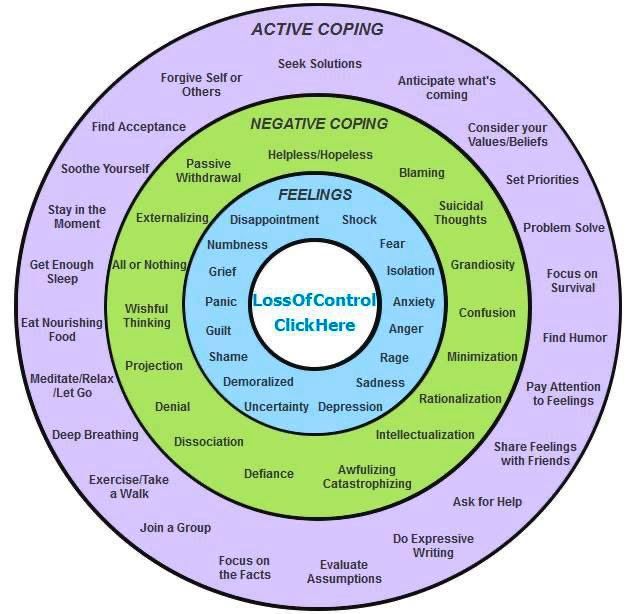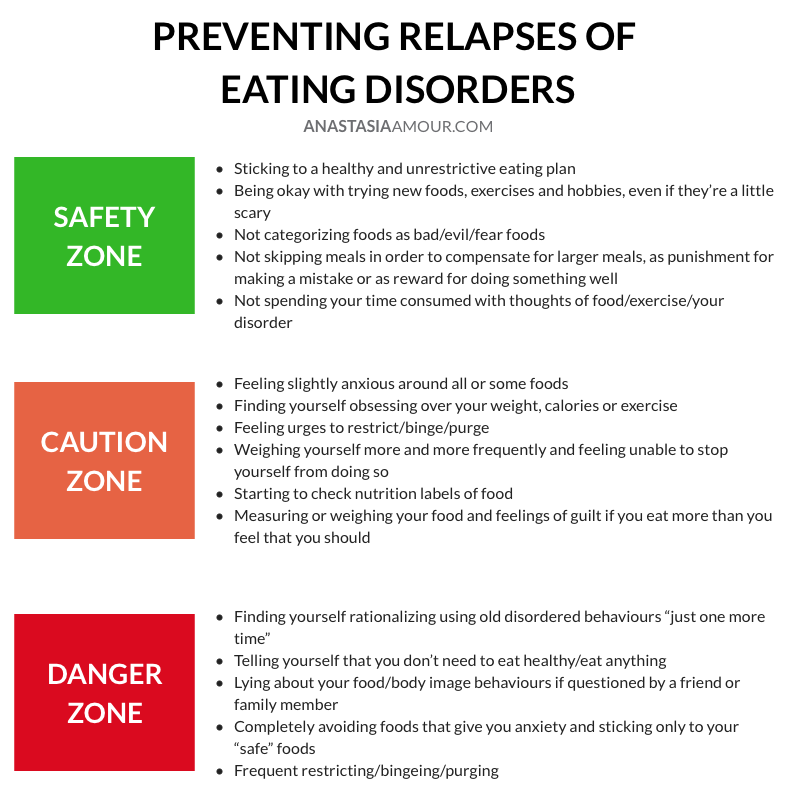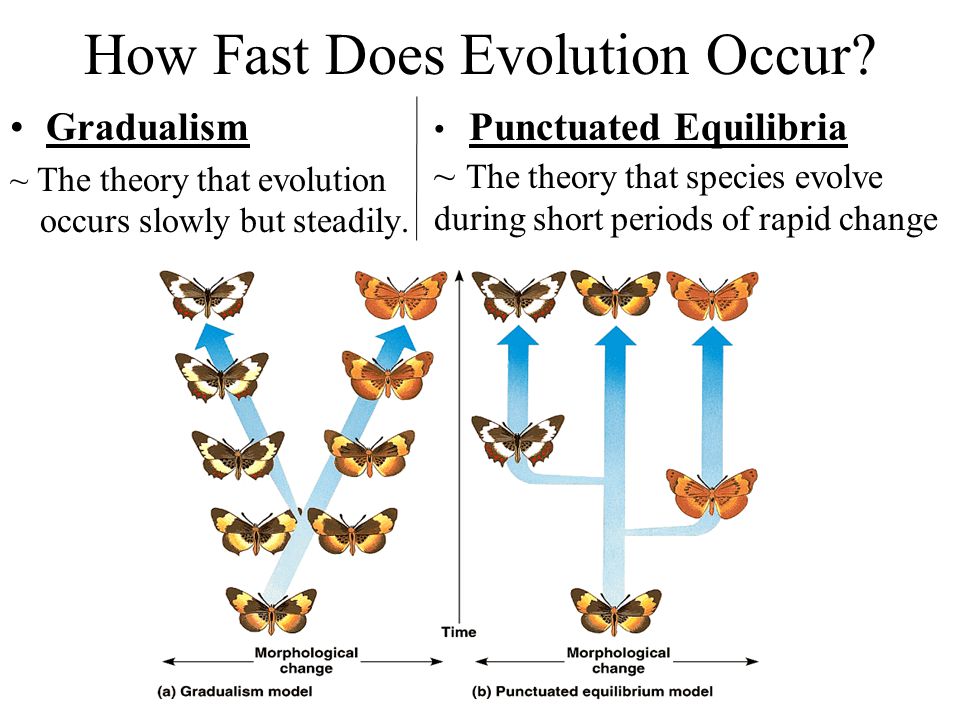Emotional abusers play the victim
Types of Abusers: The "Victim"
When you are the target of covert abuse, your abuser may present as a victim. This can be particularly confusing to you, the real victim, as you spend countless energy trying to prove to the perpetrator your undying love in order to save the relationship.
An abuser who uses the victim mentality to manipulate his/her partner is a master manipulator.
This article is written to the true victims of this type of abuse.
Note: For purposes of this article, I will use the term, “Victim” to mean the true abuser and “Target” to represent the true victim of abuse.
If you are the Target of a Victim, then you know all too well how confusing your relationship can be. I’m sure when you first met your Victim you felt deep concern for his/her struggles and most likely, over time, wanted to show him/her that you could love really well and thus, cure him/her of his/her victimhood.
Unfortunately, you were wrong.
Victim abusers usually portray themselves as innocent, hurt, blameless wounded souls, caught up innocently in the poor behavior of another person (usually a previous partner) or circumstance. Victims are very self-centered, and when in relationships are only capable of seeing their own hurt, even if it’s fabricated. Victims do not care about the feelings of others, showing a complete lack of empathy.
Victims frequently feel sorry for themselves. Even if they cause the problems in their relationships (which is usually the case.) they don’t see this reality and they feel victimized as they cause the problems. It’s amazing, really.
Victims also seem to twist reality on its head by blaming the Target for the problems in the relationship, making statements such as:
“You have a distorted sense of reality.”
“You just don’t understand me.”
“You’re abusive (narcissistic).”
“This relationship is destroying me!” (Implying that you, somehow, are the culprit in the destruction.)
The truth about the Victim is that he/she cannot be in a healthy interpersonal relationship and use the manipulation or “tool” of abuse to prevent the possibility of any true and meaningful connection. In essence, the Victim sabotages his/her own happiness and blames you for it.
In essence, the Victim sabotages his/her own happiness and blames you for it.
And if you are like most Targets, you will turn yourself into a pretzel to try and convince your loved one that you can improve, care better, be more available, etc. You even ask the Victim how you can be a better partner. The Victim may not even respond to your requests to explain him/herself more clearly, preferring to imply that you’re fatally flawed and incapable of “getting it together” enough to meet his/her needs.
This is VERY frustrating for the Target, who cannot understand why the Victim is so miserable and is deeply perplexed over how to solve this problem. The Target, believing the rhetoric, becomes overly responsible for fixing the relationship. The irony is that the problem only exists because the Victim created it in the first place; and there really is no solution! At least as far as the Target is concerned.
For the relationship to truly improve, the Victim has to (1) develop insight; (2) take ownership of his/her contribution to the problem; (3) change.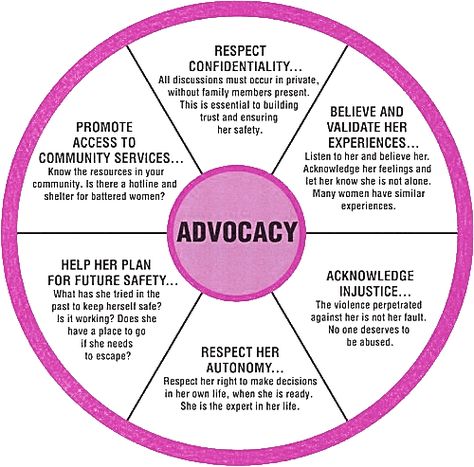
According to Lundy Bancroft, in the book, “Why Does He Do That?” Victims have some common similar beliefs that are perpetuated in their intimate relationships. See if your partner displays any of these covert attitudes:
- Everyone has done me wrong; particularly my previous partner(s.) Poor me.
- If you start accusing me of being abusive you are just proving that you are just as cruel and unfair to me as the “rest” of them.
- It is justifiable for me to do whatever I feel you are doing to me, and even to make it quite a bit worse in order to make sure you get the message.
- I’ve had it so hard I’m not responsible for my actions.
The primary feeling of the Target of this type of relationship is that of guilt. Because of the implied messages of guilt constantly thrown toward the Target, he/she has been conditioned to believe (as mentioned above) that he/she is responsible to fix the problem. If the Target can’t fix the problem (and it really isn’t fixable) then he/she ends up feeling more guilt.
If the Target can’t fix the problem (and it really isn’t fixable) then he/she ends up feeling more guilt.
Because of the feelings of guilt, the Target has a hard time leaving this type of abusive relationship. Victims present themselves as helpless and pathetic souls, which makes it difficult for Targets to break free. In addition to this, Targets often aren’t even aware that anything abusive is taking place, given the insidiousness of “victimhood” abuse.
As a therapist, I have spoken with many Victims, themselves, who held to the narrative that all of their unhappiness is a result of the behaviors of their partners. The truth is, these Victims are often the true abusers in the relationships, putting the responsibility for fixing everything on their partners.
In fact, the convictions of the Victim are so strong, everyone believes this narrative – including the Target and onlookers. Thus, everyone starts believing that it’s the Target’s job to change in order for the relationship to improve!
Because the true cause of the Victim’s unhappiness has not been properly identified, the Target may spend countless years trying to “improve” only to find that he/she falls just sort of “making it. ”
”
If you are in this type of relationship and want to break free then I recommend you develop three skills:
- Trust yourself.
- Set boundaries – do not allow yourself to be responsible for anyone else’s happiness or life.
- Dis-engage from the madness.
I would advise you to not waste one more day of your life trying to appease someone who can’t be pleased. If its a pig, accept that reality and stop trying to force it to be a cat!
Remember, your life belongs to you, not to the other person. If you believe you are being manipulated, stop participating in the drama. Allow yourself to have a good day. Give yourself permission to let your loved one feel bad if he/she wants to.
Reference:
Bancroft, L. (2002). Why Does He Do That?: Inside the Minds of Angry and Controlling Men. New York, NY: Berkley Publishing Group.
Reactive Abuse: why abusers play the victim and why they get away with it
| 2/2/2019
One of the most common tactics abusers use is to shift blame for the abuse onto the victim. from here | Archives September 2019 |
Soul Care | Karpman's triangle or psychological games
Stephen Karpman is an outstanding psychotherapist.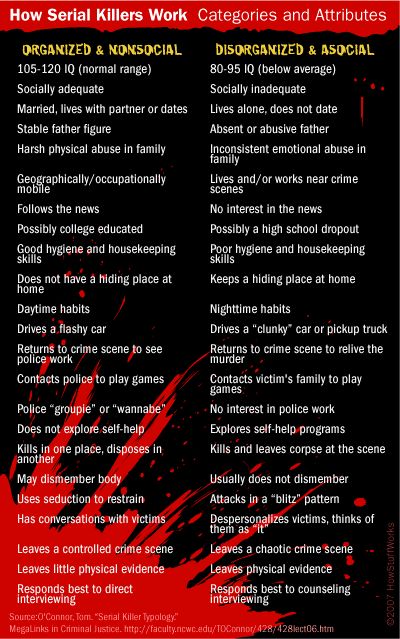 Based on the work and research of his teacher Eric Bern, he formulated a socio-psychological model, the so-called "Karpman Triangle".
Based on the work and research of his teacher Eric Bern, he formulated a socio-psychological model, the so-called "Karpman Triangle".
This model was first published in 1968. Since then, the Karpman Triangle has become a well-known model that describes dysfunctional and destructive relationships. This model describes in an accessible way the scheme by which these relations rotate.
There are three roles in the triangle: victim, rescuer, offender. Each of the participants in this triangle plays three roles. But everyone has a favorite role. That is, it is a role in which a person stays longer. Depending on what is closer to a person to be a victim, save or offend. Two people are enough to play this scheme.
There can often be many people in a triangle. For example, a group at work of "victims" who are offended by a group of "offenders" and a group of "rescuers" who protect the "victims".
Karpman's triangle can be found in relationships, both in the family and at work, among neighbors, and friends. In other words, in any team and group of people.
In other words, in any team and group of people.
I want to give an example of such a triangle. Two couples are friends. When they meet, they have a good time. They have common interests. Children go to the same kindergarten.
One day, while talking on the phone, a woman from married couple No. 1 “victim” complains to her friend, a woman from married couple No. 2 “rescuer”, that her husband goes to football on the day off instead of spending time with his family, and then with friends in the bath.
A woman from couple #2 “rescuer” advises a woman from couple #1 “victim” to get ahead of her husband, leave early, leaving the children to him and spend the whole day shopping with her friends. The woman "victim" does what her friend the woman "rescuer" told her to do. As a result, the husband of the “victim” spent the day off at home (he became the “victim”), his wife became the “offender” by her act. When she returned home happy in the evening, the husband of the “victim” did not talk to her and went to sleep in the office (thus he turned from a “victim” into an “offender”). The next day, the woman "victim" called her friend the woman "rescuer" and accused her of the fact that their marriage was being destroyed through her fault. Thus, she moved from the victim to the "offender". The woman who played the role of "rescuer" turns into a "victim". In the evening, the newly baked “victim” complains to her husband that her friend is not grateful, does not appreciate her, does not think with her own head and unfairly accuses her of a quarrel with her husband. Thus, inviting her husband to the role of "rescuer". The “rescuer” husband calls the “victim” husband and persuades him to make peace with his wife by buying her flowers. In a conversation, he says that it was his wife who advised her to reason with her husband in this way, showing how bad it is to spend a day off at home with children. The husband of their No. 1 married couple is angry at a friend and his wife, and from a "victim" turns into an "offender", he advises not to stick his nose into their family affairs.
The next day, the woman "victim" called her friend the woman "rescuer" and accused her of the fact that their marriage was being destroyed through her fault. Thus, she moved from the victim to the "offender". The woman who played the role of "rescuer" turns into a "victim". In the evening, the newly baked “victim” complains to her husband that her friend is not grateful, does not appreciate her, does not think with her own head and unfairly accuses her of a quarrel with her husband. Thus, inviting her husband to the role of "rescuer". The “rescuer” husband calls the “victim” husband and persuades him to make peace with his wife by buying her flowers. In a conversation, he says that it was his wife who advised her to reason with her husband in this way, showing how bad it is to spend a day off at home with children. The husband of their No. 1 married couple is angry at a friend and his wife, and from a "victim" turns into an "offender", he advises not to stick his nose into their family affairs. Now the “rescuer” husband feels like a “victim”, misunderstood and not appreciated. And this story can be continued indefinitely. They lived like that, running along the Karpman triangle. Unfortunately, the triangle is endless and people can walk according to its scenario for years.
Now the “rescuer” husband feels like a “victim”, misunderstood and not appreciated. And this story can be continued indefinitely. They lived like that, running along the Karpman triangle. Unfortunately, the triangle is endless and people can walk according to its scenario for years.
How to get out of the triangle and then not fall into it?
First you need to acknowledge the existence of a triangle in your life. Honestly in front of you to make out how you walk in a triangle? How do you play the roles of "victim" - "rescuer" - "offender" and with whom you lose it. Honesty with oneself is necessary for constructive introspection. The role of the victim willingly feels unhappy, negatively evaluates himself and the world around him, constantly complains about other people.
Need to understand where, to whom and when you give power over your life? What scares you about responsibility? When asking the opinion of another person, do not take it as the only correct one. Do not rush to put into practice the advice of other people. How many people have so many opinions. When making a decision to do or do something, be prepared to deal with the consequences of your decision.
Do not rush to put into practice the advice of other people. How many people have so many opinions. When making a decision to do or do something, be prepared to deal with the consequences of your decision.
Don't be so quick to blame people for your failures. Try to see a lot of instructive and valuable. Do not shift responsibility for your life onto other people. Try to find ways to improve your life without the help of a lifeguard. Do not allow yourself to feel that other people owe you and owe you. Stop waiting for someone to solve your problems. Solving problems and situations that arise in your life is your responsibility. Realize that you have power over your life. Try to enjoy the opportunity to take responsibility for yourself and take care of yourself. You will feel the power over your life, giving up the role of "victim".
The role of a rescuer
A person playing the role of a “rescuer” tends to: consider himself strong, both psychologically and physically, that he is smarter than other people, knows how to solve problems better, draws his self-esteem and asserts himself thanks to his “ rescue activities", believes that other people will die without his participation, feels responsible for other people, cannot say no, therefore he always comes to the rescue even if it is hard for him, has problems with boundaries (does not understand where his responsibility is, and where the responsibility of others of people).
Try to be honest with yourself about what you get by playing the role of a "rescuer". Find ways to reap those benefits in other, more constructive ways. Try not to give advice when you are not asked. When you are asked to give advice, do not rush to do it. Perhaps you are dealing with a "victim" who invites you to the role of "rescuer".
Do not allow yourself to think that you know better and more than others. Do nothing in the hope that you will be praised and will be pleased with you. Don't expect gratitude. Don't make commitments that are difficult to fulfill. Don't make promises. Find healthy ways to assert yourself and fulfill yourself. Analyze your surroundings. What are your relationships with those around you? Are you playing the role of a "rescuer" for the people around you. If you find that most of your relationships are built according to the "rescuer" "victim" scheme, draw conclusions and try to give responsibility to people to solve their problems without your help.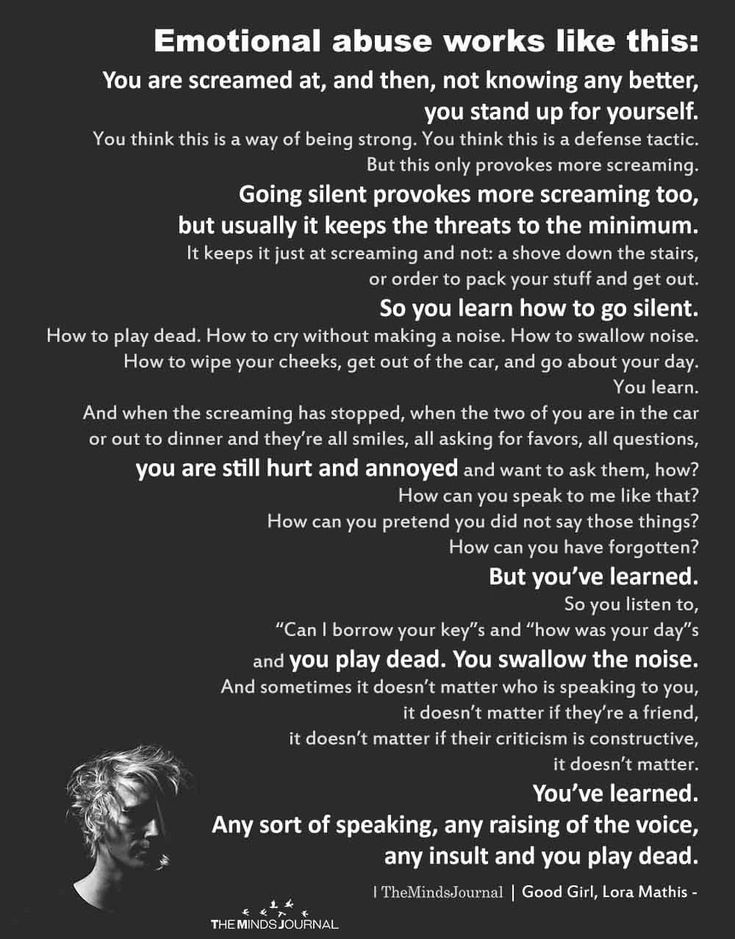 If you can’t get rid of the role of a rescuer on your own and get rid of the “victims” in your environment, do not consider it superfluous to turn to a psychologist for help.
If you can’t get rid of the role of a rescuer on your own and get rid of the “victims” in your environment, do not consider it superfluous to turn to a psychologist for help.
The role of the abuser
Try to analyze why you are angry? For whom and for what offense? Perhaps you recently played the role of a "rescuer", now you are angry at the "victim" for not being appreciated, thanked, used, etc. Being in the role of "rescuer" is difficult. The "rescuer" inevitably becomes the "offender". A deep sense of dissatisfaction and powerlessness leads a person to the role of "offender". The "victim" does not want to change. She remains a “victim”, calls you again and again to the role of a “rescuer”.
Perhaps you are trying to gain control over the situation with anger, using shouting, claims, accusations. But when you blame, shame, criticize, it does not help to change the dynamics of the relationship and the person himself.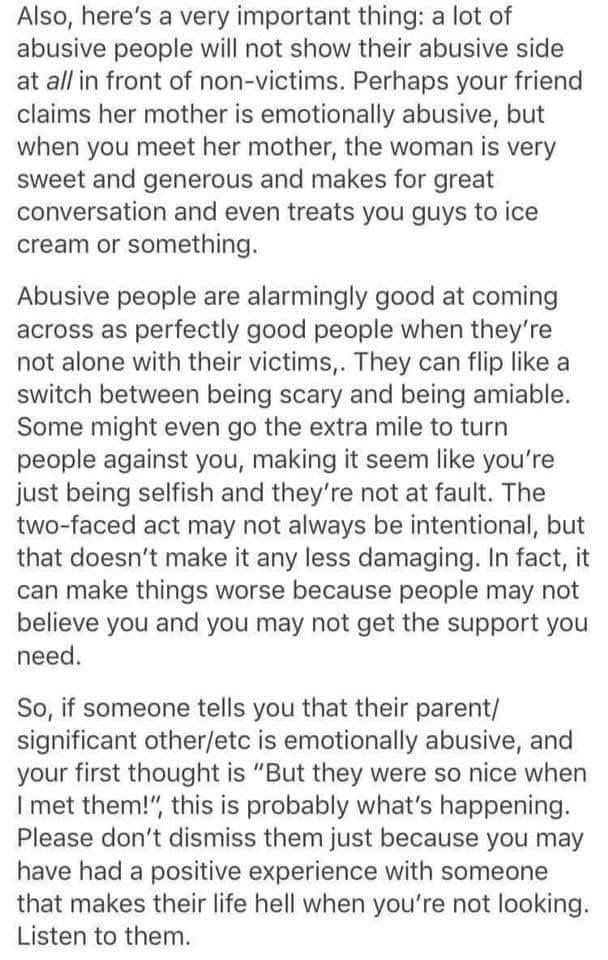
Try to take responsibility for your anger. These are your emotions, no one is responsible for how you feel. Taking out anger on another person to make it easier is destructive. Gaining control over a person with anger is not worthy of respect. Try to find other, more constructive ways to gain a sense of control.
Give up anger as a tool to achieve goals and control. Analyze your relationship with the people around you. How often do you use anger to deal with a situation? Poll people about your anger. How often do you scream? Are people afraid of you? How often do you blame them?
The “offender” can also use passive emotional violence to punish and gain control over the “victim”. May boycott, ignore and withdraw, punishing with distancing. In any case, the goal is to punish and subjugate the other person.
Anger needs to be dealt with. Anger is a very strong feeling and can cause a lot of harm, both to the person himself and to other people around him.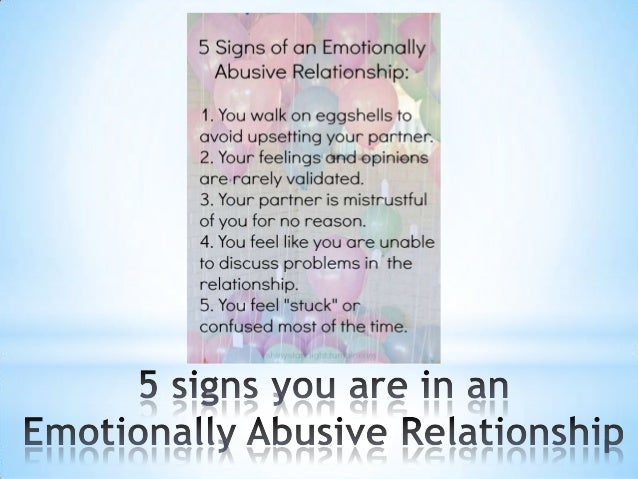 You need to take responsibility for your feelings of anger. And abandon the usual strategy of the "offender".
You need to take responsibility for your feelings of anger. And abandon the usual strategy of the "offender".
If you saw yourself in the role of "Rescuer" "Victim" "Offender" in this case, you have carried out an honest introspection, which leads to qualitative changes. Continue to analyze yourself and monitor the tendencies of the "rescuer" "victim" "offender". Reflect on who taught you to live in the Karpman triangle. Perhaps in your parental family there was such a triangle. Start a diary in which carefully write down triangles from childhood, with whom you lost, who was in the triangle. After that, analyze all the triangles that are now in your adult life. For deeper changes, work through all the triangles with a psychologist.
What to do with those who often play the unfortunate Victim?
May 02, 2014 08:44 AM
Situation from the life of a business woman: live her like your own. It's late, you're tired and you're about to go to bed, but suddenly the phone rings.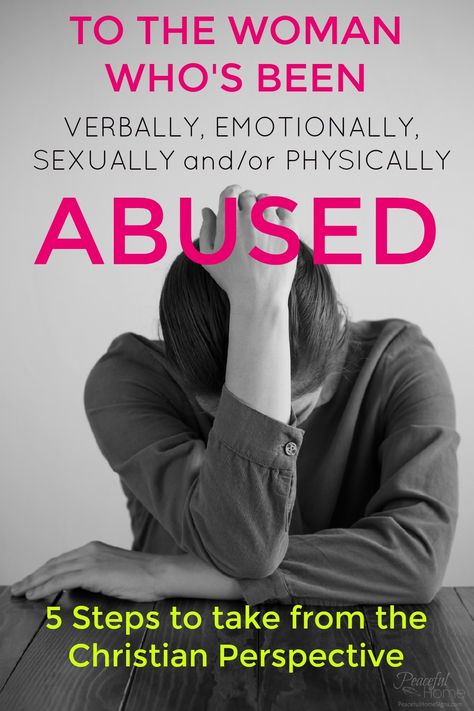 You pick up the phone - and you hear the voice of a friend ... This time, a friend is completely useless, crying sobbing, and through her sobs you can hardly understand that she is on the verge, that her husband has been drinking for the third day, that she found his notebooks with his phones women, and in general he recently had a daughter from that whore. You try to calm her down, but you don't know how. After half an hour of your unsuccessful attempts, your friend hangs up, and you feel that you have not done everything for her ...
You pick up the phone - and you hear the voice of a friend ... This time, a friend is completely useless, crying sobbing, and through her sobs you can hardly understand that she is on the verge, that her husband has been drinking for the third day, that she found his notebooks with his phones women, and in general he recently had a daughter from that whore. You try to calm her down, but you don't know how. After half an hour of your unsuccessful attempts, your friend hangs up, and you feel that you have not done everything for her ...
In fact, you have fallen into the trap of Karpman's triangle. The Karpman triangle is a standard relationship model consisting of three roles: Victim - Persecutor - Savior. There is a lot of research on it, and the main thing you need to know about this triangle is that you don't belong there. Whatever role you are attracted to there, or whatever role you are persistently offered, you do not belong in this triangle.
Why?
There are 7 video lessons in the course. View >>
Firstly, because, as a rule, this whole triangle is glued together from lies. Are you really sure that the Victim is the victim? Are you convinced that the Chaser is really the stalker here? And by the way, the Savior - is he really the Savior? Not obvious. The fact is that in life the Victim often pursues itself and firmly gets the Persecutor, so in reality the roles are rather reversed, and if at some time this is not obvious to you, remember the “dog from above” and “dog from below”
These are vivid images and, in fact, concepts introduced by Frederick Perls. “Dog on top” is an open accusatory position, often with shouting, swearing and other barking. “Dog from below” is also an active accusatory position, but hidden. Not a single word of reproach, just after what you said, her face expressed mute suffering, her eyes were miserable and wet, her shoulders slumped, her hands nervously sorted through a handkerchief already wet with tears ... And you understand that all this is because of you. Your health?
Not a single word of reproach, just after what you said, her face expressed mute suffering, her eyes were miserable and wet, her shoulders slumped, her hands nervously sorted through a handkerchief already wet with tears ... And you understand that all this is because of you. Your health?
The Savior is most often just a toy in the hands of the Victim, that is, the victim himself, and under the pressure of the weeping demands of the Victim, he usually worries more about his own safety or reputation. If he is a savior, then at best for himself.
Secondly, show a healthy skepticism towards the unrestrained sobs of the unfortunate Victim and do not rush to feel sorry for her with all your heart. As a rule, the Victim is really in a difficult situation, but do not be naive: the crying and wailing of the Victim is a form of dramatic performance for an appreciative audience, where the price is the consent of the public to work for the Victim.
In the same situation, you can behave in a completely different way.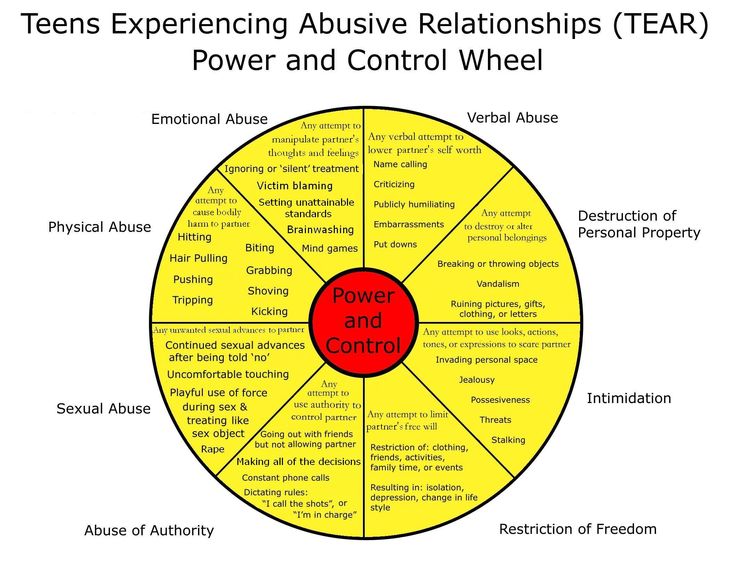 Life is often difficult, but in this case, someone chooses to think and do, and someone chooses to throw off all responsibility, cry and wait for help from others. Question: who chooses this way? Why? And why are you here?
Life is often difficult, but in this case, someone chooses to think and do, and someone chooses to throw off all responsibility, cry and wait for help from others. Question: who chooses this way? Why? And why are you here?
If suddenly the Victim gets a call from work or the postman comes, she won't cry for them: what's the point in that? It’s bad for the victim, it’s true, but she cries to you so bitterly and loudly so that you can see and feel it, after which you feed her with attention and begin to work for her.
Thirdly, do not hurry as a Savior to calm the crying Victim. To pity and calm a bitterly weeping person is the reaction, it would seem, the most natural, but pay attention, usually this does not result in subsidence, but intensification of absentee claims against the Persecutor and even louder sobbing sobs. It is better to check and see for yourself. It usually turns out that the verbally declared desire to calm down is not leading, it comes from a weak and secondary part of the Victim's personality.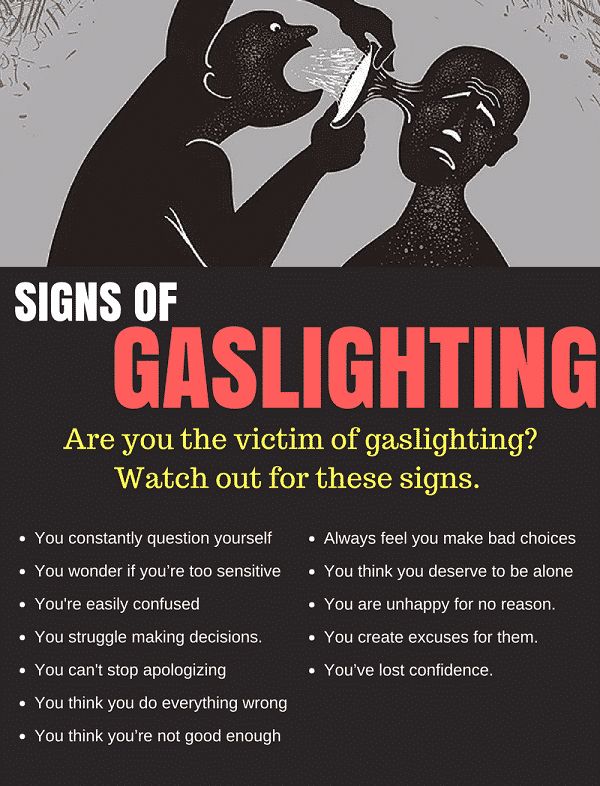 And with a strong and main part of her personality, she categorically does not want to calm down, because in fact she does not want to calm down, but to take revenge on her Persecutor. And if you, as the Savior, do not want this together with her and offer her some kind of vile reassurance, then you will turn out to be a formal traitor! Hence the potential aggressiveness of the Victim: if the Savior, according to her feelings, does not save her, then her anger falls on him, and she becomes the Persecutor in relation to the traitor. That is, just the Savior.
And with a strong and main part of her personality, she categorically does not want to calm down, because in fact she does not want to calm down, but to take revenge on her Persecutor. And if you, as the Savior, do not want this together with her and offer her some kind of vile reassurance, then you will turn out to be a formal traitor! Hence the potential aggressiveness of the Victim: if the Savior, according to her feelings, does not save her, then her anger falls on him, and she becomes the Persecutor in relation to the traitor. That is, just the Savior.
If you are not a professional psychotherapist, you should not take such situations and such clients on your chest: you will not help the client, and after that you may need psychotherapeutic help. Your task is only to “resolve” the situation, that is, to get out of it with the least losses for both sides. Among the appropriate ways to deal with this situation, when you are offered the role of Savior in this glorious triangle, the simplest are: 1) open protest, 2) mild sabotage, 3) "wake the beast", 4) aggressive stupidity, 5) workload, 6 ) conclusion of a contract for the provision of services.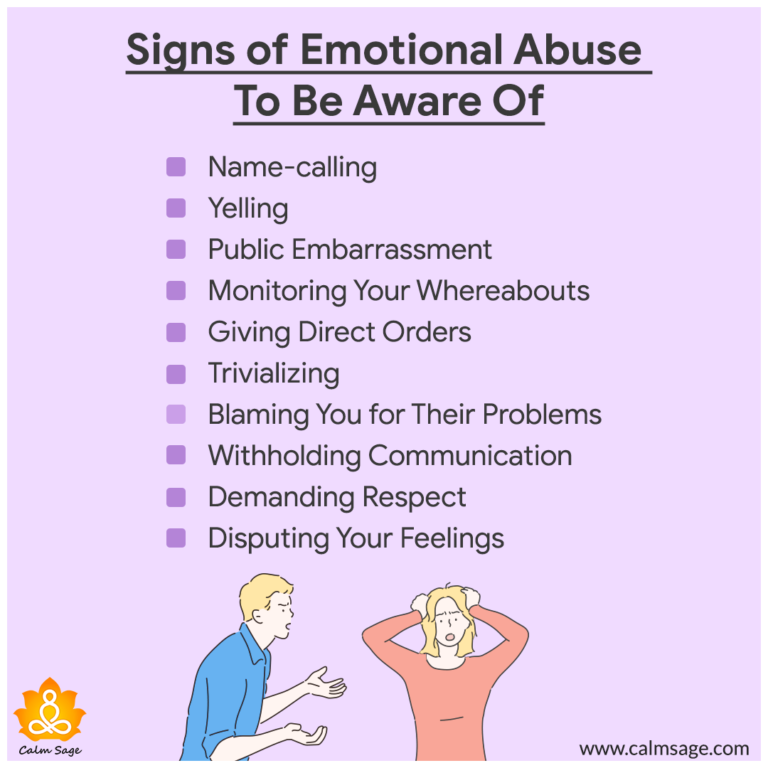 Like this? Let's figure it out in order.
Like this? Let's figure it out in order.
Open protest
“I don't think it's possible to interfere in your relationship. I’m sorry that this happened to you, but you have to figure out your relationship yourself.” Then - to transfer the conversation to another topic, showing that you do not intend to return to that topic. This is the easiest way, especially if the relationship can be reduced to business or you do not really value these relationships.
Soft sabotage
In this tactic, one should wear down the victim with long questions, constantly straying to find out completely extraneous details and, in fact, switching attention from aggressive crying to everyday specifics. “Yes… And when did all this happen? On Thursday? I remember… It was still raining so hard during the day. Did you have it too? ... ”In this case, your natural emotional dullness or wise detection of it is especially helpful. The disadvantages of this method are that it usually takes a lot of time.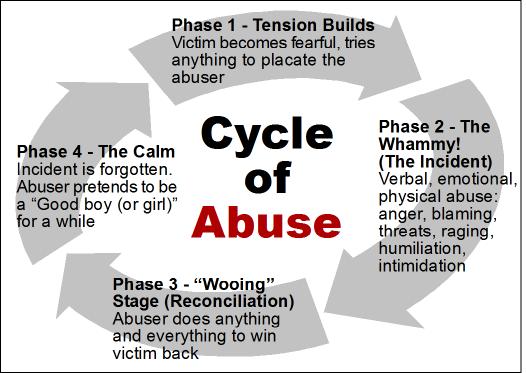
“Wake up the beast”
Crying can be based on different energies: energetic accusatory crying indicates a high level of strength and energy, while dreary squelching indicates an energy decline. In this case, a reciprocal collision can cheer up a downhearted person: “Yes, and who are you? …" - etc. With such a construction of phrases, a short particle “not” by consciousness, as usual, is nicely skipped, and your formulas really work on a person: “capable of more”, “capable of being strong”. In combination with emotional pumping, a person on reciprocal aggression will do great things and later say “thank you”. However, if you don’t know a person well, don’t take risks: instead of success, you can get suicide.
Aggressive stupidity
The purpose of this technique: we proceed from the fact that your interlocutor is not very smart (more precisely, in this situation he chose the role of a narrow-minded person) and, in fact, he hopes to use your brains. Then, if you convince him that you are stupid yourself and there is nothing for him to use, he will have to turn on his own head - which, in fact, is required.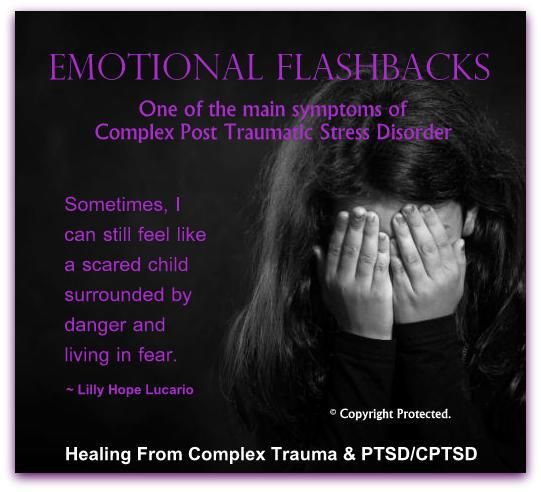 Specific execution - among the various intentions of the interlocutor, you choose the most aggressive (in this case: “I want to divorce him!”) And begin to insist on this option with conviction (and stupidly).
Specific execution - among the various intentions of the interlocutor, you choose the most aggressive (in this case: “I want to divorce him!”) And begin to insist on this option with conviction (and stupidly).
- He's a bastard! Can you imagine he's dating that bitch next door! Gad! I can't see him anymore!
- You're right, you need to respect yourself! Break up with him! Tomorrow!
– I dedicated my whole life to him, but he… I can't be under the same roof with him! Ungrateful!!!
- Get a divorce! (And further similarly.)
Protests: “Well, how can I get a divorce, but what to live on?” are simply ignored by your conviction: “You can’t live like this. Gotta get divorced!" All. There are no complaints about you - you are spiritually with your friend, you understand and share her feelings, it’s another matter that your interlocutor’s too firm position does not suit you. Well, this is a matter of life. The attentive reader will see here a variant of the "bringing to the point of absurdity" method.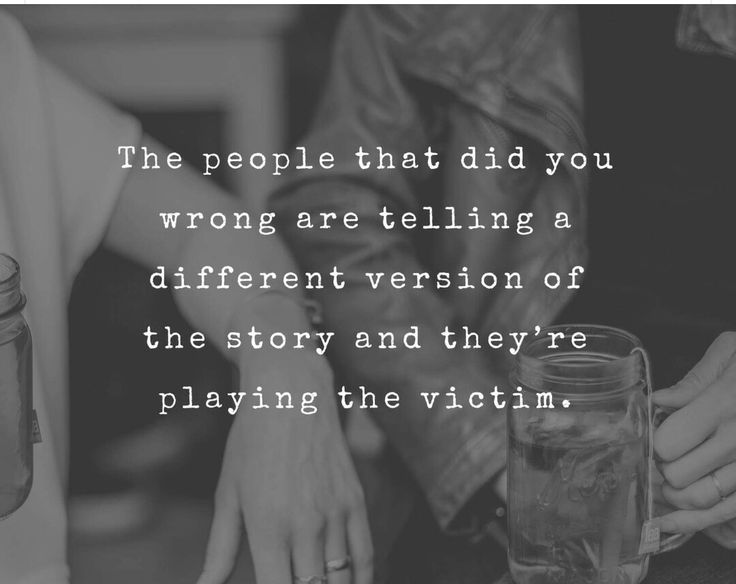
Overloaded with work
People don't like being overburdened with work, and emotional diarrhea usually ends when "you have to pay for the market." In this case, it is quite appropriate, instead of listening helplessly to empty claims, to switch the interlocutor to his own affairs, extremely specific cases:
- He's a bastard! Can you imagine, he ... (here a series of accusations)! Gad! I can't see him anymore!
- You're right, you need to respect yourself! Make yourself a new hairstyle (update your wardrobe, go to the sea and relax, go to psychological courses).
Or more specifically: "Listen, you're my best friend and you should respect yourself! I won't listen to your sobs calmly. Do you want to whine or be independent and strong? Here's the phone number of a hairdresser (psychologist, masseur, fitness club)". Further detailed and persistent briefing in the proposed areas. Possible beats like “no strength, no time or money” are categorically ignored: “If you want, you will find!” or more extensively: “If you don’t take care of yourself, no one will take care of you!”. This option can be more extended, with a little "sympathy", but in any case, it is faster and more efficient than using you as a toilet. The most curious thing is that sometimes this technique turns out to be not only a protection for you, but a great idea and a guide to action for the interlocutor.
This option can be more extended, with a little "sympathy", but in any case, it is faster and more efficient than using you as a toilet. The most curious thing is that sometimes this technique turns out to be not only a protection for you, but a great idea and a guide to action for the interlocutor.
Signing a contract for the provision of services
This technique is both more effective and more difficult, so we will consider it more widely and in more detail. So, the scenario is traditional: the Victim, using his "right of the weak", puts pressure on the Savior and insists that she should be served the way she wants, on her own terms. In accordance with the Synthesis Technology approach, you help, but not for free, but in exchange for the fact that your interactions unfold based on your scenario, according to your rules. As a rule, your scenario should consist of at least two points: the Victim himself formulating a request for specific assistance and the fulfillment of any disciplinary conditions put forward by you.
But let's start in order. Self-formulation of a request is not easy to obtain, it usually requires an open formulation of a question (or an appropriate expectation), along with warmth, emotional support, and at the same time perseverance. Such a conversation might take, for example, the following form:
– I am listening to you very carefully. Now you are calling me: what would you like to receive from me? What kind of help?
- Well, I feel bad!
– Yes, I hear. You are sweet and good, and I am very sorry that everything does not work out for you. But I do not know what will be better for you now from me, what my help may be. How do you know how I can help you?
Line-by-line analysis of this dialogue is performed here...
If the crying has stopped and reasonable conversation has begun, then everything is in order. If, however, something inarticulate on the topic “to figure it out” sounds through the ongoing crying, then it is necessary to put forward disciplinary conditions.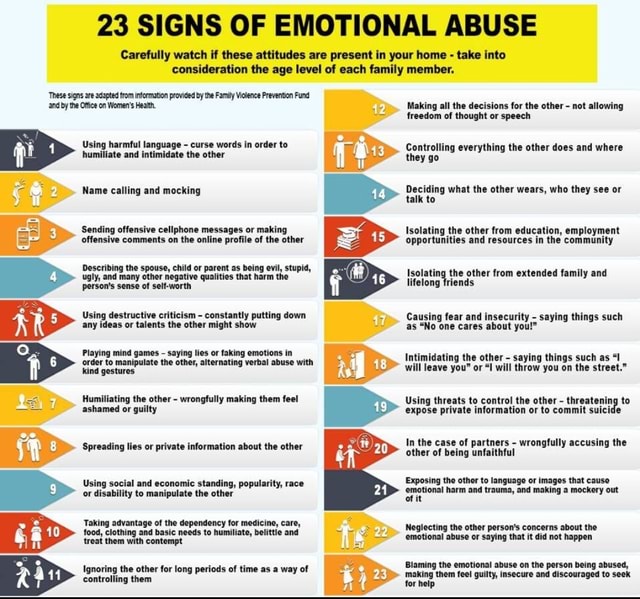 For example, like this:
For example, like this:
– Do you really want to understand what happened? I don't think you've cracked yet. And this is very necessary. Therefore, so that you and I can talk properly, you have a task: you now need five minutes in front of me to cry sobbing, much like you started our conversation. Do you think you can do it now?
Another version of the same:
- Here's what we need to agree on. (Pause.) Can you hear me? (You need to wait for the answer: “I hear!”) Good. If during our conversation you feel that tears are coming, you will not restrain yourself and start crying, but you must cry for a long time, at least three minutes, to cry it all out. If you do not do this, our conversation will not be very productive, and you have a very important question. Do you make such a commitment?
The main result of this conversation is that you will no longer be disturbed by the topic “save me”, and you will avoid both accusations of insensitivity and unnecessary manipulative games.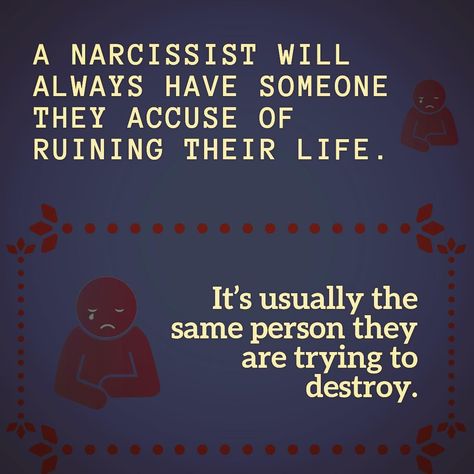
From a reader's letter
I like the conclusion of a service contract the most. There was a story: I'm sitting at home, not bothering anyone, composing spurs, because it's ten o'clock in the evening, and I have an exam tomorrow. But here comes the phone call. An old friend calls, there are tears (which is not news) and the phrase "I'm dying, come", which is somewhat alarming. I take a taxi, I go.
In fact, the situation turns out to be this: the boyfriend, the yachtsman, the handsome bastard, betrayed and abandoned, and as a way to get rid of this vile life, a package (25 tablets) of tazepam was drunk. Well, the dose is not lethal, but health can be planted.
Okay, what should I do? The proposal to call an ambulance is categorically rejected, nevertheless I call a doctor I know and receive instructions. The girl seems to be barely alive, but she has enough strength to complain and curse. I feel that they are already seriously trying me for the role of a toilet bowl, and if this is not stopped, then I will be approved in it without competitors.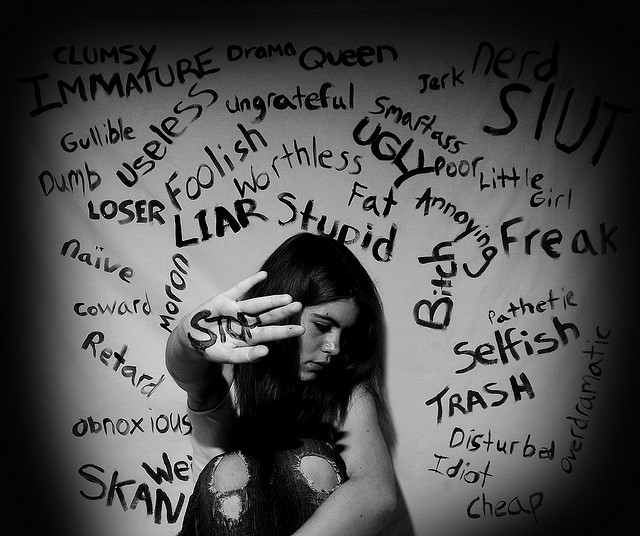 My answer: following the doctor's advice, I introduce my friend to a more professional performer of this role - a faience friend in the toilet. It seems that some of the resentment goes away with the muddy streams, the girl quieted down, but I still get some details from the bastard behavior of the offender: “Imagine, he rode three naked girls on a yacht at once, and he told me that he loves only me and never for anything ... "
My answer: following the doctor's advice, I introduce my friend to a more professional performer of this role - a faience friend in the toilet. It seems that some of the resentment goes away with the muddy streams, the girl quieted down, but I still get some details from the bastard behavior of the offender: “Imagine, he rode three naked girls on a yacht at once, and he told me that he loves only me and never for anything ... "
Attempts to find out what is required of your obedient servant in this situation have not yet been successful. At least I am relieved to know that no one needs to “beat their face”. My proposal to beat off all three of his uncomplexed passions from the yachtsman also does not arouse enthusiasm. What else to do?
Tried to play on pride in the style: "You're a rag!" - again a bummer, in the face of two more full packs of sleeping pills, this topic had to be abandoned. Okay, trade left. I’m getting excited: in the end, the exam is coming soon, and I still haven’t got a horse lying around.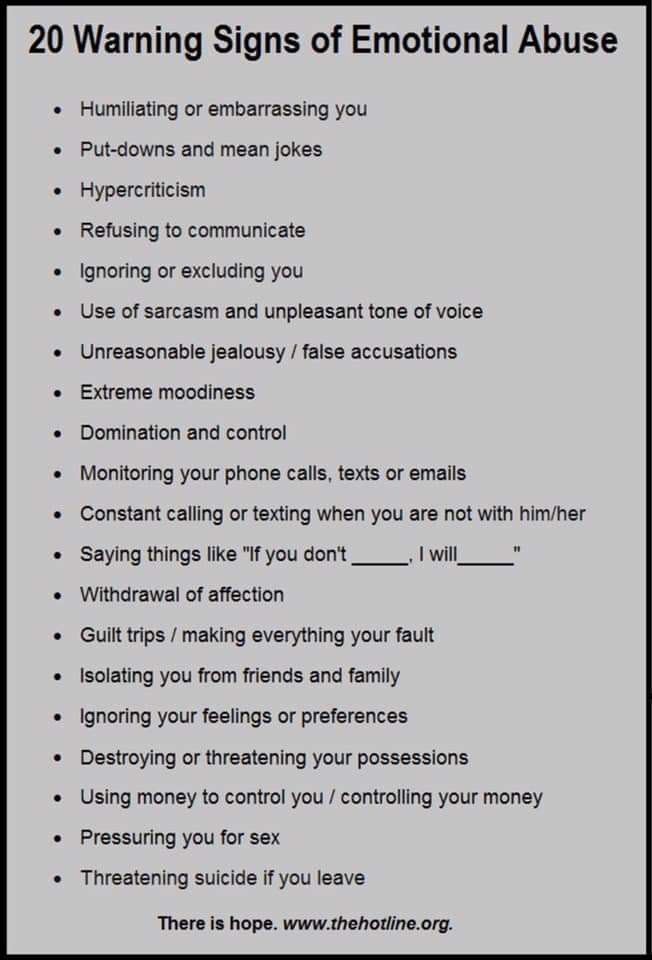 So, honey, let's go like this: you, like a leading figure in this subject, sit down to write cheat sheets for me, and I undertake to devote 30 minutes every two hours to your problem. Hurrah, it worked! And even the first half-hour session of psychotherapy has already passed somehow suspiciously constructive. And then they let him go to sleep. And the cribs were miraculously good, the whole semester went with an increased scholarship.
So, honey, let's go like this: you, like a leading figure in this subject, sit down to write cheat sheets for me, and I undertake to devote 30 minutes every two hours to your problem. Hurrah, it worked! And even the first half-hour session of psychotherapy has already passed somehow suspiciously constructive. And then they let him go to sleep. And the cribs were miraculously good, the whole semester went with an increased scholarship.
And the next day, only “What a fool I was” and a half-empty package of tazepam remained of all my worries. Half empty - because, it turns out, only half was drunk, and that's not a fact ...
- Formula of success
- Karpman triangle
- Author N.I. Kozlov
- Communication and influence
- Position of the Victim
- Course - I don't play the Victim
Comments (19):
Guest, May 19, 2014, 13:58 And what about the "aggressor"?
1
answer
N.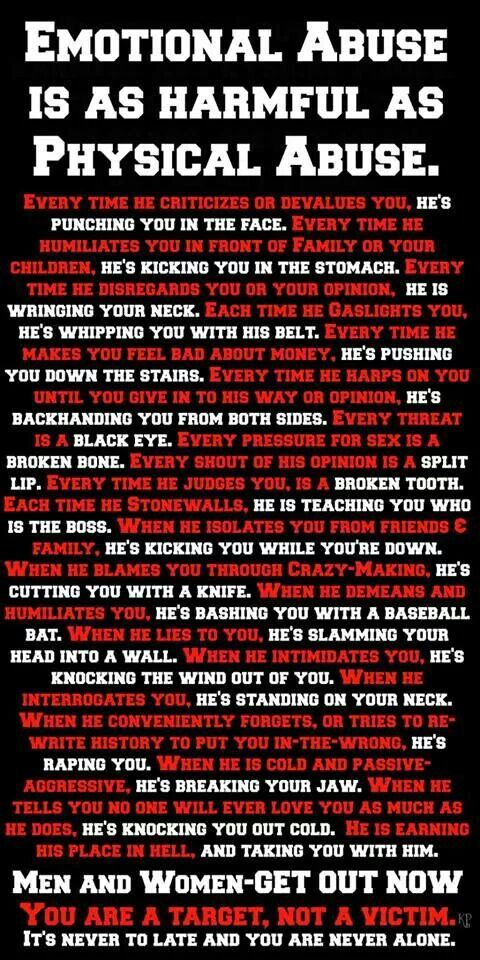 I. Kozlov, May 19, 2014, 03:08 PM
I. Kozlov, May 19, 2014, 03:08 PM
Can you elaborate on your question? He is not very clear.
1
reply
Alexey Kurzenkov, December 22, 2016, 13:09
I join the question, what should the aggressor do? As you rightly noted, this role is often imposed on the aggressor, provoked. Here is a specific situation. There is an apartment, one of the rooms in which two girls rent. I am moving into another room. In the evening, the girls play loud music. I ask you to make it quieter, to which they arrange a terrible scandal for me. Then they call the owners of the apartment and tell a bunch of nasty things about me. That is, it was a clear provocation with the aim of expelling me. I didn't interfere with them, they just didn't like the very fact that they had a neighbor. Well, the owners - my old friends, quickly realized what was happening. To be honest, I am a peaceful person, but in response to such aggression, there was naturally a very strong desire to teach them a lesson in good manners in soft places.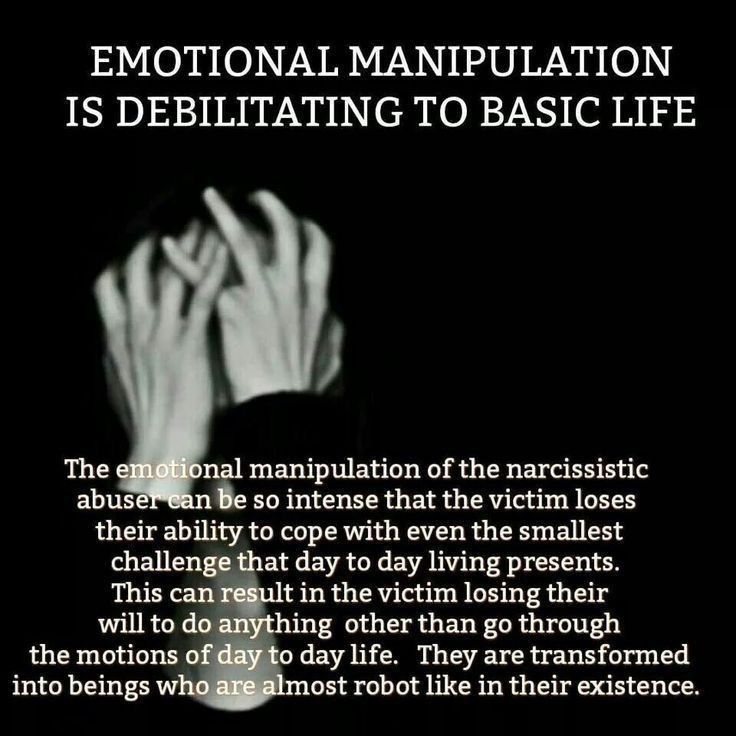 Kidding! In fact, I restrained myself, but now I am not sure that in such a situation, under conditions of stress, I will not succumb to provocation. Fortunately, I have already moved out of that apartment. But I know that this technique is very common.
Kidding! In fact, I restrained myself, but now I am not sure that in such a situation, under conditions of stress, I will not succumb to provocation. Fortunately, I have already moved out of that apartment. But I know that this technique is very common.
Guest, June 02, 2014, 11:59 PM
I have a close friend, he constantly comes to me with his problems (almost every day). We communicate on various topics, but often he talks about how helpless he is, that he is being suppressed, he is not being helped. He asks for my help, and not only for advice (it often came to financial assistance, the further, the more). So I just now realized that he was pulling me into a triangle. I am a savior. He is a victim. His parents are persecutors. Here's what's very interesting. I sometimes communicate with his parents, and from their words, they are the victims, and he is the persecutor. I concluded for myself that, most likely, this is a child-rearing program, a cycle. As a child, his parents were likely victims.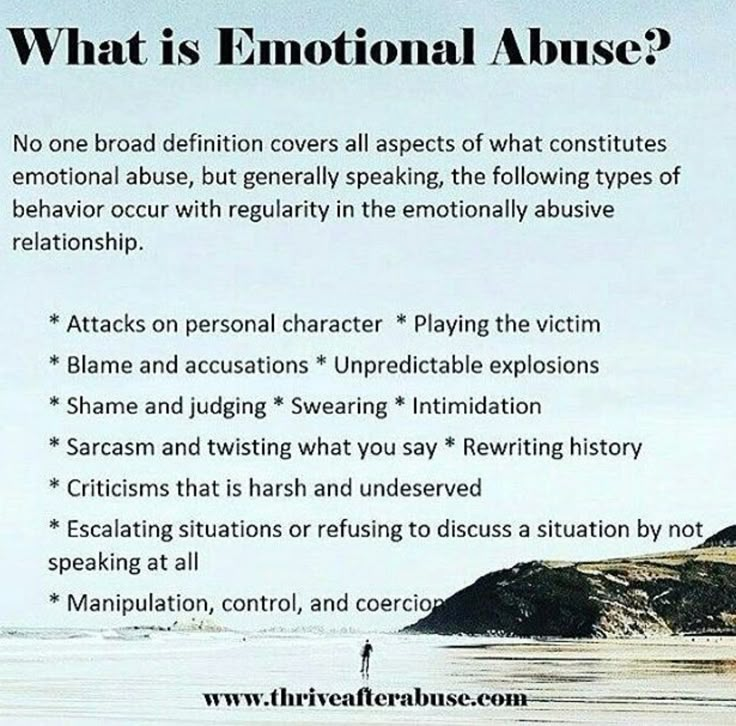 Now they have become "tyrants" over children, only when the children become adults, the victim transforms into a "tyrant" (but not completely), and the "tyrant" into a victim (but not completely). This ambivalent state of each side, as I see it, is caused by the unwillingness to give up their positions, the program laid down in childhood: they say that the victim child takes an example from the persecutor parent. And the savior, I'm afraid, will not help them. This needs to be approached more globally. To change family values themselves, which is permissible for an already grown child. He must realize this and raise his child intelligently and (most importantly) with love. I have described only observations of a triangle in one of the families. But still I think that it is also possible to solve a similar problem, for example, in relationships, only through awareness.
Now they have become "tyrants" over children, only when the children become adults, the victim transforms into a "tyrant" (but not completely), and the "tyrant" into a victim (but not completely). This ambivalent state of each side, as I see it, is caused by the unwillingness to give up their positions, the program laid down in childhood: they say that the victim child takes an example from the persecutor parent. And the savior, I'm afraid, will not help them. This needs to be approached more globally. To change family values themselves, which is permissible for an already grown child. He must realize this and raise his child intelligently and (most importantly) with love. I have described only observations of a triangle in one of the families. But still I think that it is also possible to solve a similar problem, for example, in relationships, only through awareness.
Guest, December 09, 2014, 9:38 PM
A strange way of harassment by a girl.
Guest, December 29, 2014, 11:20 pm
Tell me how to behave in the following situation. An elderly person after a serious illness and hospital recovers at home. Relatives come to look after him in turn. Sometimes doctors and nurses come. Relatives very quickly became enemies, because they do not do what the patient wants. They don’t go fast enough, they don’t go, but not those who want to, they want to lift the patient as it is convenient for them and not overstrain, they want the patient to eat, drink medicines that are prescribed by the doctor, but not all of them were announced to the patient, many of them can only be drunk after meal. At the same time, the patient wants to talk without interruption, wants to listen without interruption, does not object, even to fiction or lies, even if it hurts relatives, wants relatives to lie to all friends and acquaintances of the patient that he is healthy. The patient often cries, accuses, insults, demands, knocks... The article above seems appropriate to me. The patient is the Victim, the relatives are the Aggressors, the doctors are the Saviors.
An elderly person after a serious illness and hospital recovers at home. Relatives come to look after him in turn. Sometimes doctors and nurses come. Relatives very quickly became enemies, because they do not do what the patient wants. They don’t go fast enough, they don’t go, but not those who want to, they want to lift the patient as it is convenient for them and not overstrain, they want the patient to eat, drink medicines that are prescribed by the doctor, but not all of them were announced to the patient, many of them can only be drunk after meal. At the same time, the patient wants to talk without interruption, wants to listen without interruption, does not object, even to fiction or lies, even if it hurts relatives, wants relatives to lie to all friends and acquaintances of the patient that he is healthy. The patient often cries, accuses, insults, demands, knocks... The article above seems appropriate to me. The patient is the Victim, the relatives are the Aggressors, the doctors are the Saviors.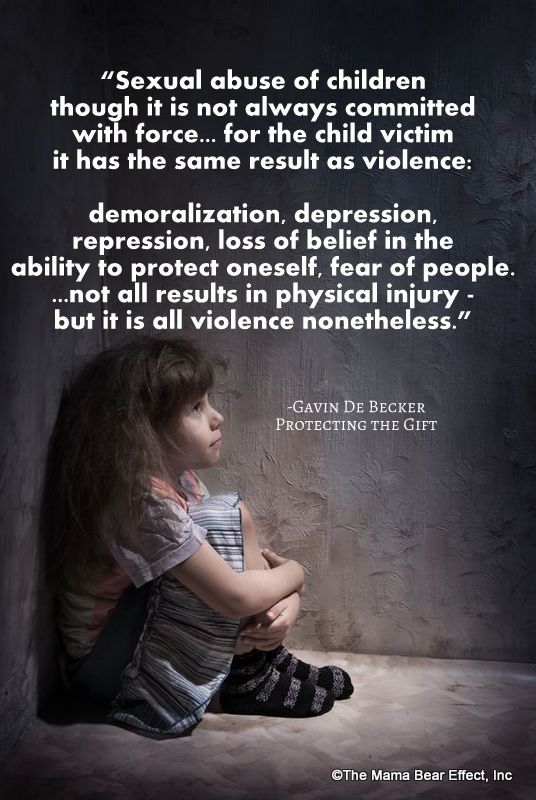 That's just you can not leave the patient with the doctors, but it is necessary with relatives. Nurses are expelled with a bang for the slightest objection. What to do?
That's just you can not leave the patient with the doctors, but it is necessary with relatives. Nurses are expelled with a bang for the slightest objection. What to do?
N, July 19, 2015 10:01 am
Is this a bed patient? We went by the method of comparison - it's good that there are many relatives and they come in turn, and even doctors if necessary. Not every bed patient has relatives, not everyone has the financial ability to organize it all. You can even veiledly say that not some are handed over to a nursing home, but we are supposedly taking care of ourselves - after all, we are not strangers. It is necessary to turn a person in that direction - so that he appreciates what he has. It will take a long time, it is difficult, it is hard, and it even seems impossible. Water wears away the stone. I wish you to be patient and strong. You are great that you did not give up the burden, and at the same time remained humane.
Olga, September 17, 2015, 12:57 pm
Practicing "Calm presence" (do not get emotional about a sick person), just do what you should do: help him in what he can no longer do for himself.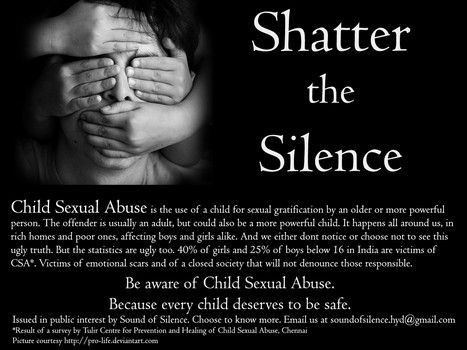 Try to translate your feeling of oppressive moral duty, simply into calm concern for a living, stupid being. You don't owe anything to anyone, but you're just a merciful person. And you have enough mental strength to be a support for the weak. Can you? If not, then come to the Distance">http://www.prodelo.ru/distantniki/?ch=kommpsihologos">Distance to train your new and important life skills.
Try to translate your feeling of oppressive moral duty, simply into calm concern for a living, stupid being. You don't owe anything to anyone, but you're just a merciful person. And you have enough mental strength to be a support for the weak. Can you? If not, then come to the Distance">http://www.prodelo.ru/distantniki/?ch=kommpsihologos">Distance to train your new and important life skills.
Masha, December 18, 2015, 4:11 pm
Thank you for the article! Very interesting, I caught myself playing the role of the Victim.
Maksim, January 14, 2016, 6:57 pm
My wife played the victim, if before the birth of the child it was generally even funny, well, how am I, as a knight, saving my princess from numerous troubles, then after the trend set in; well, I got to know the Karpman triangle in time and stopped playing the role of the pursuer imposed on me; Unfortunately, this did not stop the victim, since it was no longer possible to take me to assault (the abf helped predict the situation), then the victim simply lied to her rescuers (neighbors, parents, then the police, guardianship authorities, etc.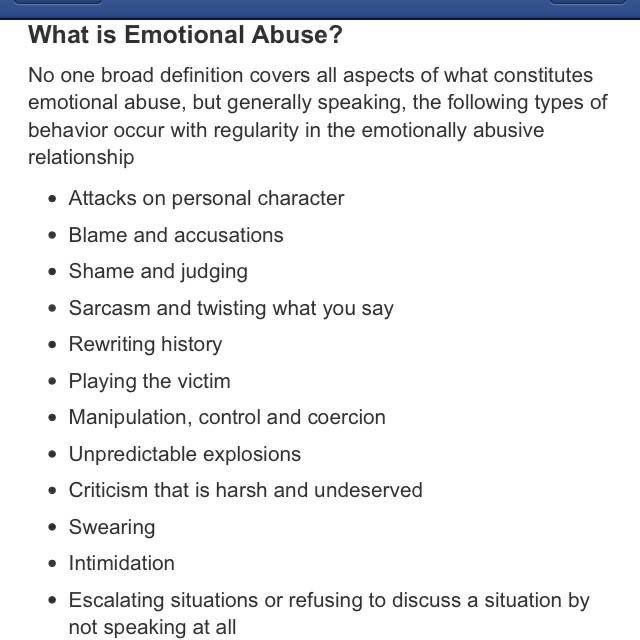 ) for the sake of a portion of pity, oh how I beat her and the child, do not give money, etc. This trend stopped filing for divorce, installing video cameras in the apartment (in case of further charges in state bodies, this could end with 116 of the Criminal Code), an offer to live in cohabitation (out of wedlock) in my apartment subject to my conditions (the main one without taking out the brain), or say goodbye while the flight is normal, the ex-wife provides comfort, I no longer pay attention to her whining, at all; I’m always ready to leave, it’s a pity I won’t see the child after that, as they will be blackmailed, which I cannot allow myself to do.
) for the sake of a portion of pity, oh how I beat her and the child, do not give money, etc. This trend stopped filing for divorce, installing video cameras in the apartment (in case of further charges in state bodies, this could end with 116 of the Criminal Code), an offer to live in cohabitation (out of wedlock) in my apartment subject to my conditions (the main one without taking out the brain), or say goodbye while the flight is normal, the ex-wife provides comfort, I no longer pay attention to her whining, at all; I’m always ready to leave, it’s a pity I won’t see the child after that, as they will be blackmailed, which I cannot allow myself to do.
2
replies
Guest, April 22, 2017, 6:39 PM
Good decision, I'll take note. Are there any improvements in the family after a year or is everything the same at a distance? Are there any deterioration?
Guest, December 16, 2017, 07:57 PM
I.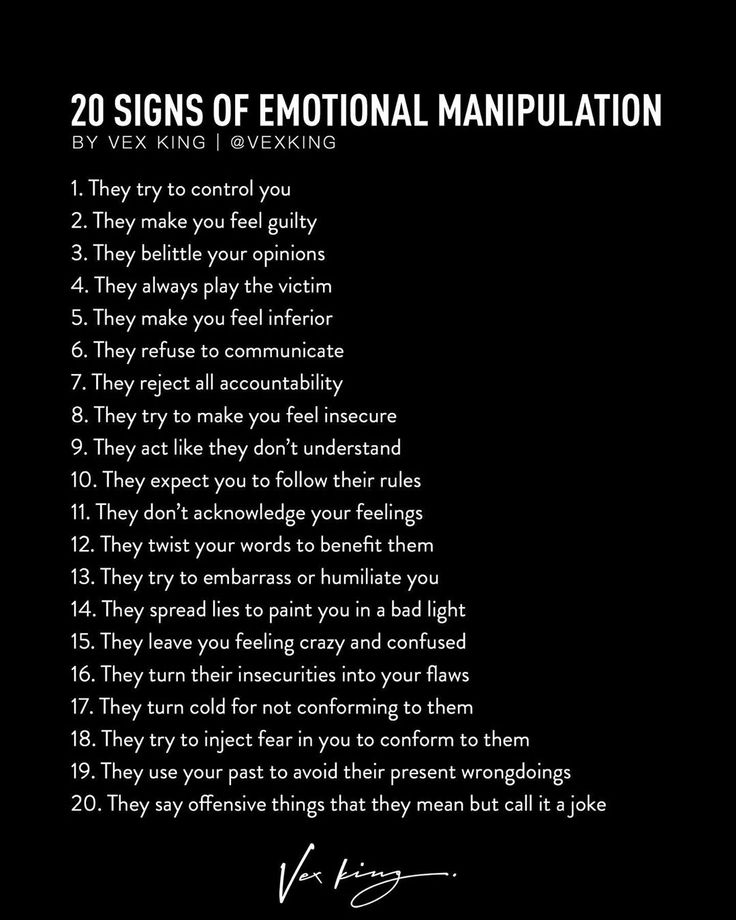 e. in fact, the wife showed herself to be a liar, a manipulator, a provocateur, scandalized, dragged into the Karpman Triangle. In fact, she led a real "war" against her husband. For this, the "enemy" is given a formal divorce, relocation to his apartment + his workload, constant monitoring of the behavior of the "enemy" on his territory. Here it seems to me that in the consequences, she also received a "reward" for her manipulative behavior, tk. the husband moved it to his place, and the video cameras also seemed to play into her hands, if she "screwed up" somewhere, then the husband "is to blame - he did not keep track."
e. in fact, the wife showed herself to be a liar, a manipulator, a provocateur, scandalized, dragged into the Karpman Triangle. In fact, she led a real "war" against her husband. For this, the "enemy" is given a formal divorce, relocation to his apartment + his workload, constant monitoring of the behavior of the "enemy" on his territory. Here it seems to me that in the consequences, she also received a "reward" for her manipulative behavior, tk. the husband moved it to his place, and the video cameras also seemed to play into her hands, if she "screwed up" somewhere, then the husband "is to blame - he did not keep track."
Guest, Sep 10, 2016 05:21 AM
What I've personally learned is not having people around in any of these roles. When such people appear, it’s stupid to close in yourself (I’m busy) (I’m not interested) (your problems). This does not allow me to start playing the game and forces me to solve my problems without other people. September 23, 2016
1
answer
N.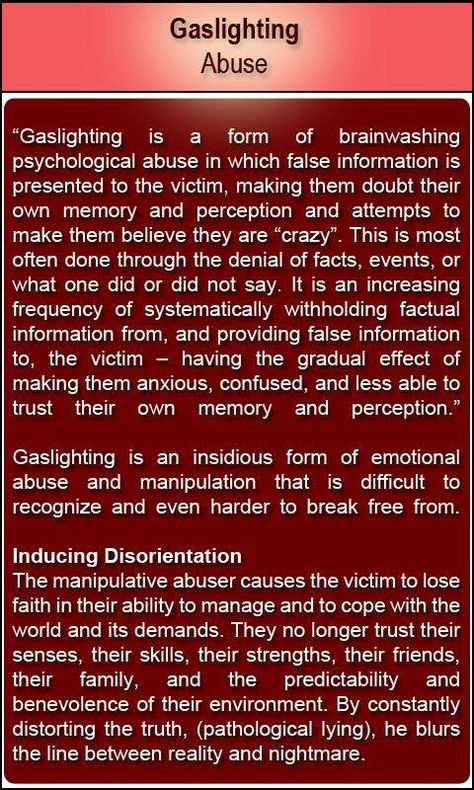 I. Kozlov, September 23, 2016, 10:06 pm
I. Kozlov, September 23, 2016, 10:06 pm
Yes, exactly. For many, this is not a game, but a natural way of life. 10 May 2017 asking for clarification and explanation. And the next minute they are already shouting at me, as if at an aggressor, and demanding answers to all claims ... At first, I generally doubted the adequacy of the "poor victim", and now I simply limit contacts with the "poor things." No thanks, I say. Let's talk about it in the next life!
Guest, March 28, 2018 8:12 PM
Going beyond the Karpman triangle The main thing you need to know about Karpman's triangle is that you don't belong there. Whatever role you are attracted to there, or whatever role you are persistently offered, you do not belong in this triangle. Karpman's triangle is a reality, but only for stupid people who live by feelings, do not have clear goals and do not know how to control themselves, over and over again finding themselves in the position of the Victim. The more reasonable a person is, the more he is in the author's position, remembers his goals and deliberately implements them, the less often he will fall into this madhouse.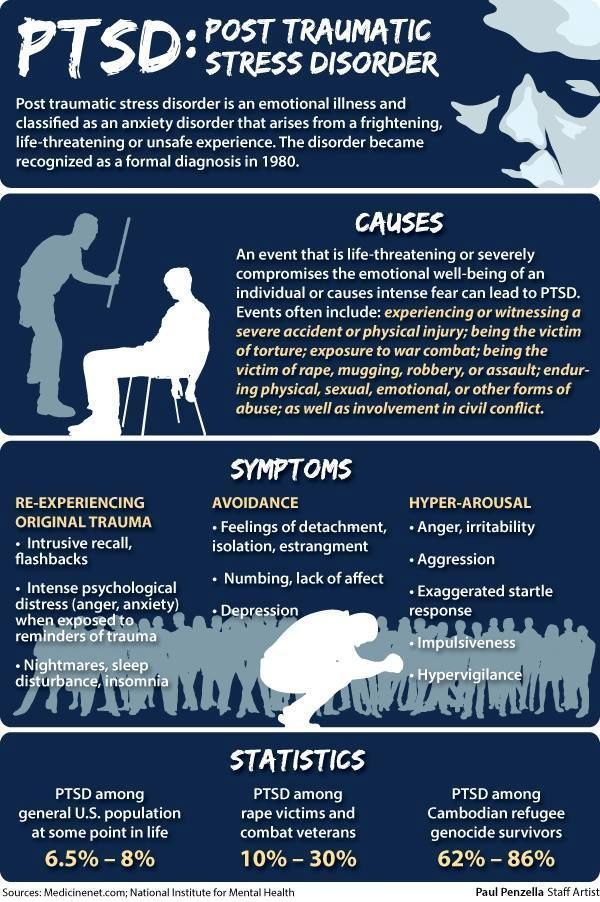 How to implement all this specifically?
How to implement all this specifically?
Guest, Jul 03, 2022, 2:01 pm
In a conflict, when the husband knows he is guilty, he begins to suffer so difficulties, and you are a knife in my back”, “you don’t support me”, and, if you didn’t come up with anything at all, then “I was in such a good mood, and you ...”. That is, the topic of the conflict is not mentioned at all (and the topics are serious - his betrayal, for example). He does not accept his guilt. If you continue to insist on the topic of the conflict, then there are threats “I feel bad, I will go and do something with myself.”
How to get him to talk about the topic of the conflict? How to keep from dodging the topic?
1
answer
Sokolova L.V., secretary N.I. Kozlova, July 04, 2022, 09:41
Good afternoon, Guest! Sign up for a free consultation at the University of Practical Psychology, because it is impossible to answer your question in monosyllables https://www.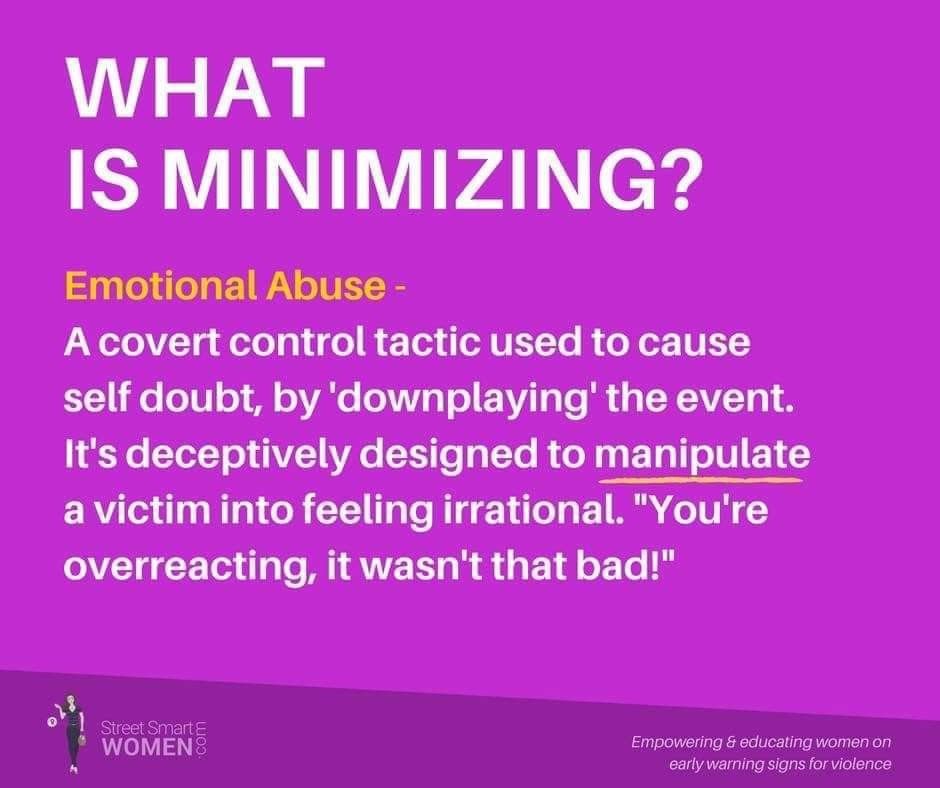 univer-pp.ru/bk/.
univer-pp.ru/bk/.
Related content:
Jun 042014
Feelings about your appearance
There are two categories of people who are characterized by traditional feelings about their appearance, these are women and teenagers. Accordingly, it is most difficult for teenage girls. They sincerely believe that they are simply ugly, and are ready to go to the mirror 50 times a day to make sure of this. And what to do with it? Just trying to convince them is pretty useless. And they will not listen, and even if they listen, they will remain with their opinion. However, there is a good experience of one of the parents (remote student), with which we want to introduce you.
7Read more
Jan 01 2000
Workshop on the semantic analysis of subtext
All the above techniques of "taxiing out" are really effective when you work out each of them.
5Read more
Jan 01 2009
Karpman's triangle
Karpman's triangle is a typical connection between three main problematic roles in human relations.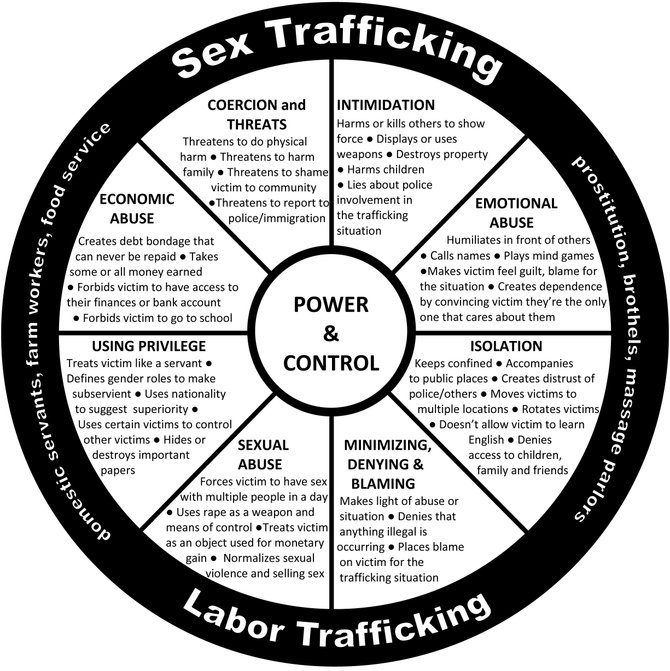
 The abuser will claim the victim is the abuser because of the reaction the victim has. The abuser may even attempt to convince the victim that there is nothing worth reacting over and that the victim is overreacting to the abuse. What the victim is actually experiencing is called reactive abuse.
The abuser will claim the victim is the abuser because of the reaction the victim has. The abuser may even attempt to convince the victim that there is nothing worth reacting over and that the victim is overreacting to the abuse. What the victim is actually experiencing is called reactive abuse.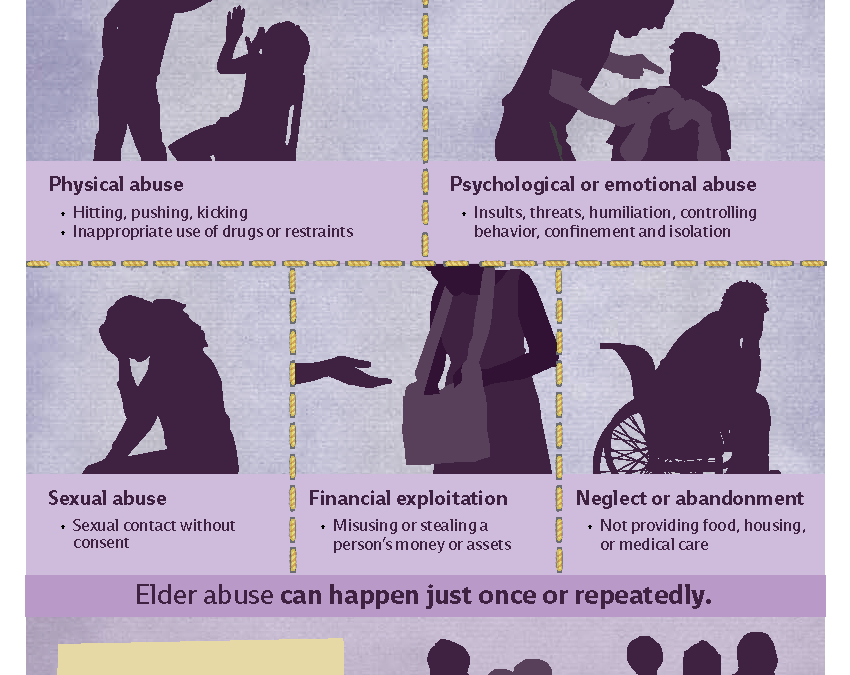

 But many times, by the time we get to the point of asking ourselves those questions, we are either too scared to leave the abuser or we just don’t have the means to do so.
But many times, by the time we get to the point of asking ourselves those questions, we are either too scared to leave the abuser or we just don’t have the means to do so.



